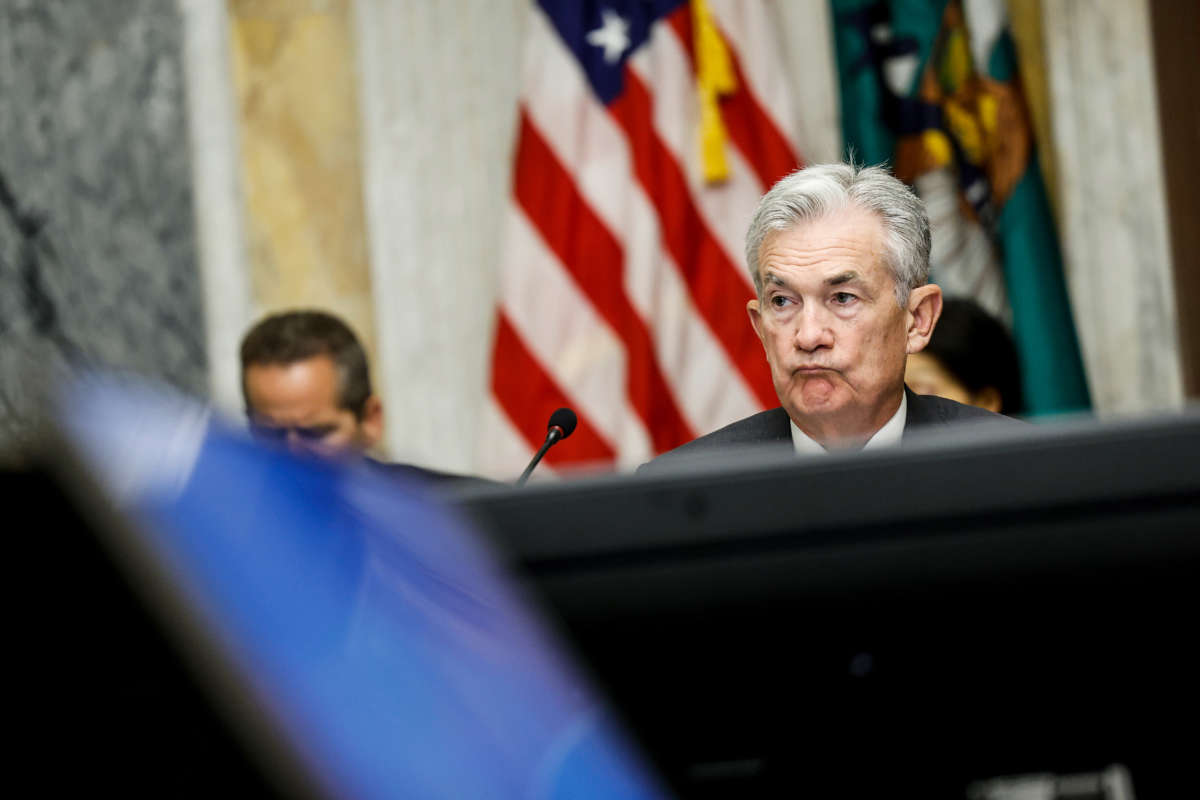A group of Democratic lawmakers led by Sen. Elizabeth Warren (D-Massachusetts) is pressuring the Federal Reserve to explain why it’s continuing to raise interest rates at such a rapid pace when economists across the political spectrum say that rate hikes will only hurt the working class with little upside for the economy at large.
In a letter sent to Fed Chair Jerome Powell on Monday, 11 members of Congress lay out a wide swath of evidence from both Powell himself and from economists that American families will be in for “pain” in the coming months, as Powell has said, as the Fed plans to raise interest rates by 75 basis points, or 0.75 percent, for the third consecutive time this year.
The letter, signed by progressive lawmakers like Sen. Bernie Sanders (I-Vermont) and Representatives Jamaal Bowman (D-New York) and Rashida Tlaib (D-Michigan), expresses “concern” about the Fed’s “alarming” plans and “disturbing warning” to American families about what to expect in coming months.
As the lawmakers point out, the Fed has predicted that as it continues raising rates through next year, unemployment will rise from its current rate of about 3.5 percent to 4.4 percent in 2023 and 2024. This means that about 2 million people will lose their jobs as economic growth slows and the labor market grows weaker, Powell has said.
“I wish there were a painless way to do that. There isn’t,” Powell said in a press conference in September, contrary to what progressive economists have said about the way that the Fed could wrangle inflation with minimal impact to the labor market.
Other experts’ estimates of the impact on the economy are more dire. Bank of America estimates that unemployment could jump as high as 5.6 percent, which could mean the loss of over 3 million jobs. Meanwhile, according to a survey released last month by The Wall Street Journal, economists predict that there is a 63 percent chance that the U.S. will enter a recession in the next 12 months, in large part due to the Fed’s relentless rate hikes.
Economists, who have been raising warnings about the damage that the rate hikes could cause for months, have been puzzled about Powell’s decisions, the letter points out. The United Nations Conference on Trade and Development has said that whether or not there will be a global recession comes down to “policy choices and political will,” economists are unclear on what the Fed’s goals are.
“The Fed clearly wants the labor market to weaken quite sharply. What’s not clear to us is why,” one economist wrote in a report earlier this year, as the letter writers pointed out. Economists have also questioned whether or not the rate hikes could have as much impact on inflation as they’re supposedly meant to have, saying that the impacts on the working class could outweigh any supposed benefits.
Memo to the Fed: Your rate hikes aren’t slowing inflation because inflation is coming from big corporations using the cover of inflation to increase their prices more than their costs.
— Robert Reich (@RBReich) October 13, 2022
Even the Fed itself admits that the rate hikes may have little impact on inflation, considering the vast amount of other factors at play, like corporate price gouging and Russia’s invasion of Ukraine, the letter reads. The lawmakers list a variety of times that Powell has admitted that the Fed’s power over commodity prices is limited.
“As one economist noted, the Fed can’t ‘click its heels three times, raise rates and have inflation drop. There’s a myriad of factors going on now, and it’s a mistake to think the Fed controls any more than a handful of those,’” the letter says. “Nevertheless, you continue to double down on your commitment to ‘act aggressively’ with interest rate hikes and ‘keep at it until it’s done,’ even if ‘[n]o one knows whether this process will lead to a recession or if so, how significant that recession would be.’”
“These statements reflect an apparent disregard for the livelihoods of millions of working Americans,” the lawmakers wrote, “and we are deeply concerned that your interest rate hikes risk slowing the economy to a crawl while failing to slow rising prices that continue to harm families.”
While progressives warn that the Fed’s rate hikes would be at best a band-aid on the problem, they say that raising interest rates to suppress demand is a neoliberal policy that passes economic pain onto the consumer at any cost — even a recession. Progressive advocates say, instead, that providing relief to the public while targeting corporations who are using inflation to raise prices would be a good start.
President Joe Biden appears to agree that corporate price gouging is an important underlying cause for inflation, at least in part. On Monday, he warned oil and gas companies that, if they don’t take action to lower gas prices at the pump, they could face a corporate windfall tax that would capture excess profits. Indeed, the oil and gas industry — and corporations as a whole — have been enjoying huge profits as inflation has soared, while Americans are increasingly having to take out predatory loans for basic expenses.
